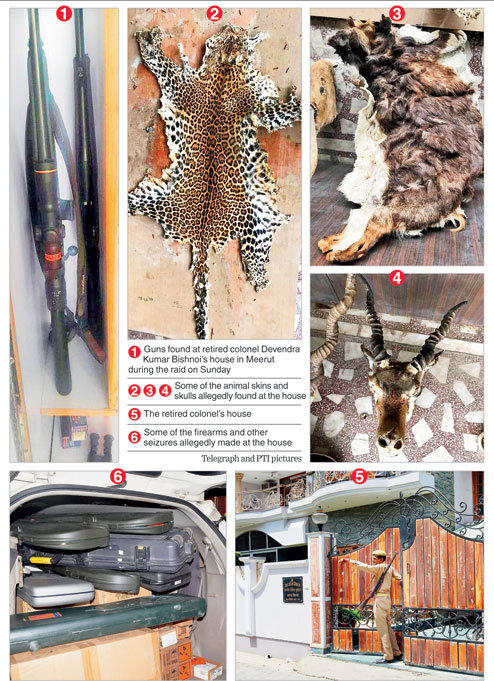
London, June 28: At the headquarters of the Royal Society at 6-9 Carlton House Terrace, all is in readiness for the arrival of Venkatraman Ramakrishnan as the next president of the world's most prestigious scientific organisation.
For example, the notice board is a little like that at Lord's. But instead of recording those who have scored either a Test century or taken five wickets in an innings, the one at the Royal Society has the names of its past presidents going back some 350 years when the society was formally set up on November 28, 1660.
Ramakrishnan - or "Venki" as he is universally known - does not want to say too much just yet because the current president, fellow Nobel Prize winner Paul Nurse, will remain in the post until November 30, 2015, with his successor taking over on December 1 for a five year-period.
Apart from inscribing Venki's name as the next president, at some point a suitable artist will have to be found to paint his portrait. And then it will hang along with such presidents from the past as Isaac Newton (1703-1727). There are evocative portraits of past Fellows, too, among them Charles Darwin.
The author of The Origin of Species will look down on Venki when he presides over meetings in the council chamber. The mace - one of only three in the UK - is currently stored under a portrait of King Charles II (1630-1685), who gave his blessings to the establishment of the Royal Society. Whenever Venki takes a council meeting, the mace has to be placed ceremonially on a table.
At a lunch hosted last week by the Indian Journalists' Association, Venki was introduced by Yusuf Hamied, the chairman of Cipla.
Venki, 63, who was born in Chidambaram in the Cuddalore district of Tamil Nadu, studied at Baroda University before leaving at 19 for the US where he worked in the universities of Utah, Yale and Ohio. For the past 16 years, Venki, 63, has been based at the Medical Research Council's Laboratory of Molecular Biology (LMB) in Cambridge. "LMB is at the forefront of molecular biology," said Venki.
As for being the president of the Royal Society, Venki said: "All my life I have been the prototypical laboratory scientist. So it was a bit of a surprise to me when I was approached by the Royal Society to ask whether I would consider being their next president. And, of course, anyone who is aware of the list of past presidents would find it impossible to decline such an honour."
"My only concern was whether I would be up to the job and so I told the officers they needed to discuss this with the council before they did anything foolish," he continued.
"And they went through the procedures and suddenly I was told that the council had ignored my reservations."
There are a couple of things he find particularly attractive about the Royal Society, Venki said. "One is that it is the first organisation to promulgate the idea that there are no authorities in science - that it is not a papacy or priesthood ...it is only the evidence that matters, not who says it, who produces it."
"The other aspect of the Royal Society that I personally like is because of my background. When I was growing up, the Royal Society was considered the society to belong to. One reason is that many great Indian scientists were elected Fellows of the Royal Society before they got any other awards - for instance, C.V. Raman (Subrahmanyan) Chandrashekhar, (Har Gobind) Khorana."
"...many others who did not get the Nobel Prize like J.C. Bose or S.N. Bose or Meghnad Saha, a very well-known astrophysicist. These people were recognised by the Royal Society, so it has had a very strong connection with India. And I should point out that Indian scientists are not elected as foreign members - they are full-fledged Fellows. And this is because the Royal Society is not specifically a British organisation - it is a Commonwealth organisation."










